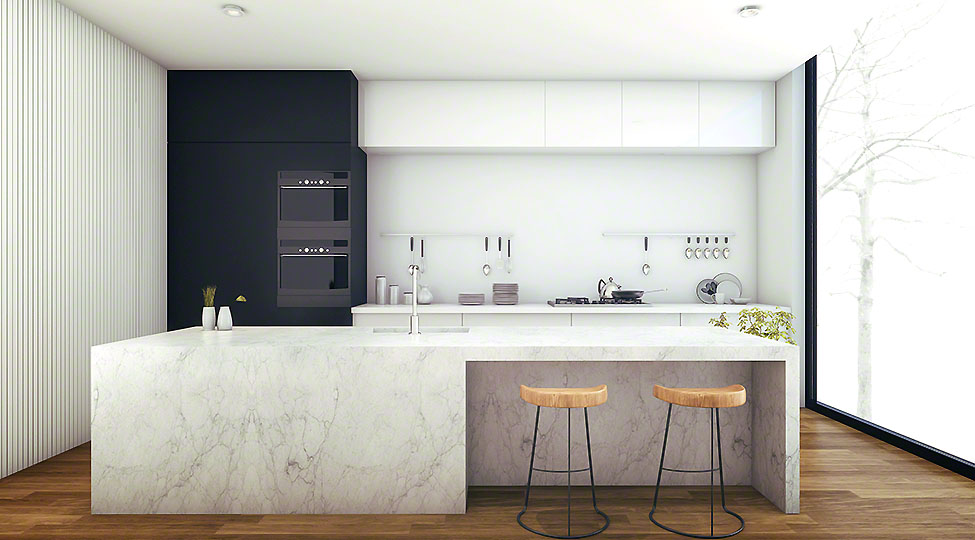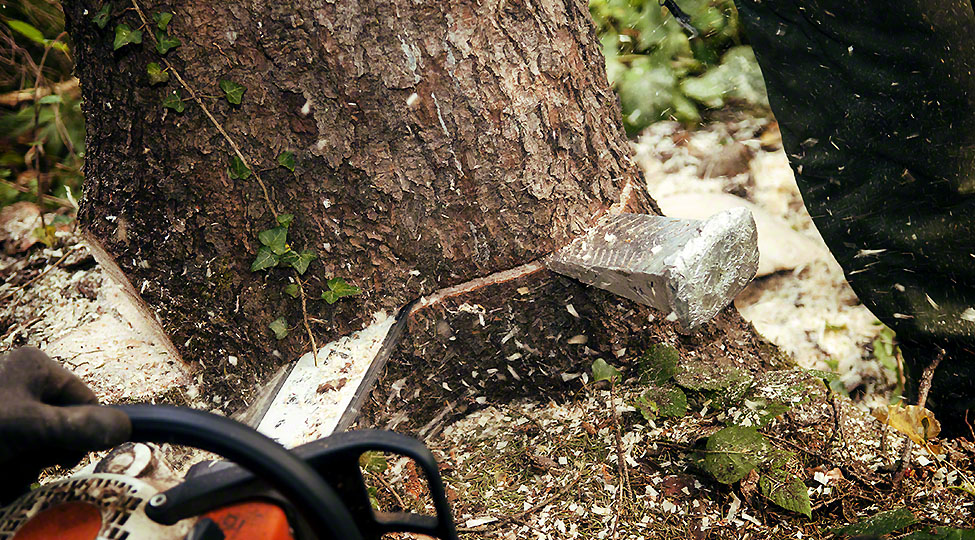Both quartz kitchen countertops and granite offer stunning appearances that elevate kitchen design, but they differ significantly in composition, maintenance requirements, and how they hold up to daily wear and tear. Understanding these differences helps you make a choice you will feel good about for the next 15 or 20 years. A busy kitchen puts countertops through serious abuse with hot pots, sharp knives, spills, and constant cleaning. The wrong material choice leads to frustration as stains appear, cracks develop, or maintenance demands eat into your time. The right choice delivers years of worry-free performance that looks great and functions flawlessly.
Understanding What Each Material Actually Is
The fundamental difference between quartz and granite starts with what these materials are made from. Granite is a natural stone quarried from the earth in massive slabs. Each piece formed over millions of years through geological processes, which means every granite slab displays unique patterns, colors, and characteristics. No two granite countertops look exactly alike because nature never repeats itself perfectly.
Quartz countertops are engineered products manufactured in factories. They contain about 90 to 95 percent ground natural quartz crystals held together with polymer resins and pigments. This manufacturing process allows producers to control color consistency and create patterns impossible to find in nature. The resulting material combines the hardness of natural quartz with the flexibility of modern engineering.
Neither material is inherently better based on natural versus engineered composition. Natural materials appeal to people who value the authentic uniqueness that only nature creates. Engineered materials attract those who want predictable consistency and specific aesthetic qualities. Your preference here is personal, though the composition differences do affect performance characteristics that matter in busy kitchens.
The cost for both materials falls into similar ranges, typically between 60 and 150 dollars per square foot installed, depending on quality, color, and edge details. Exotic granite colors or premium quartz patterns can push prices even higher. Budget should not be the deciding factor since comparable quality levels cost roughly the same regardless of which material you choose.
Durability and Resistance to Daily Kitchen Abuse
Busy kitchens subject countertops to constant challenges that test material strength and resilience. Both quartz and granite earn high marks for hardness, ranking among the toughest countertop materials available. They resist scratches from normal knife use better than softer materials, though neither is completely scratch-proof. Using cutting boards remains important regardless of which material you choose.
Heat resistance differs significantly between these materials. Granite handles hot pots and pans exceptionally well since it formed under extreme underground heat and pressure. You can set a hot pan directly on granite without worry, though trivets remain a good practice. Quartz countertops contain resin binders that can discolor or even melt under extreme heat. Most manufacturers recommend always using trivets or hot pads with quartz to prevent damage.
Stain resistance strongly favors quartz for busy kitchens. The non-porous surface resists wine, coffee, oils, and acidic foods that can stain granite. Granite requires sealing to fill microscopic pores and prevent staining. Even sealed granite can stain if spills sit too long, especially from dark liquids or acidic substances. Quartz needs no sealing and rarely stains even when spills sit for hours before cleanup.
Maintenance Requirements and Long-Term Care
The daily maintenance difference between these materials matters enormously for busy households. Quartz wins decisively in the low-maintenance category because it needs no sealing ever. You simply wipe it clean with soap and water or standard household cleaners. The non-porous surface prevents bacteria growth and resists staining without special treatments or products.
Granite demands more attention starting with initial sealing during installation. Most granite needs resealing annually or every couple of years depending on the specific stone and how heavily you use the surface. Testing for seal integrity involves placing water drops on the surface to see if they bead up or soak in. When water soaks in rather than beading, you need to reseal the granite.
The sealing process is not difficult but adds a maintenance task that busy families often forget or postpone. Quality sealers cost 30 to 50 dollars and application takes an hour or so once you move everything off the countertops. Missing scheduled sealing leaves granite vulnerable to staining, which is harder to remove the longer it penetrates into the stone.
Daily cleaning differs too. Granite works best with pH-neutral cleaners specifically designed for natural stone. Acidic cleaners like vinegar or citrus-based products can etch granite and break down sealers. Quartz tolerates most household cleaners without issues, though manufacturers still recommend avoiding harsh chemicals. This flexibility makes quartz more forgiving for households where different family members might grab whatever cleaning product seems convenient rather than checking if it is stone-safe.
Both materials resist bacteria growth well when properly maintained. Quartz has a slight advantage because the non-porous surface provides nowhere for bacteria to hide. Sealed granite also resists bacteria, but any areas where the seal has broken down could potentially harbor microorganisms in tiny pores.
Aesthetic Considerations and Design Flexibility
Quartz manufacturers now produce remarkably convincing stone-look patterns including designs that mimic rare granites, marble, and other natural stones. They also offer solid colors and modern patterns impossible to find in nature. If you want perfectly consistent coloring across multiple slabs or long expanses, quartz delivers that uniformity. Granite slabs vary even within the same shipment, requiring careful selection to ensure acceptable consistency.
Veining and patterns in granite sometimes include unexpected characteristics that only appear when slabs get cut and installed. You might discover a vein or color concentration you did not see in the showroom sample. Working with a quartz countertops dealer Potomac eliminates these surprises because the material looks exactly like the samples they show you. What you see is truly what you get.
Edge profiles work similarly on both materials, offering the same options for bevels, ogees, bullnoses, and other decorative edges. Neither material limits your design choices regarding edge details. Both can incorporate undermount sinks and both work with various backsplash materials. Your choice between quartz and granite should not limit your overall design vision since they both integrate into virtually any kitchen style.
Making the Right Choice for Your Household
For busy kitchens where practicality matters as much as appearance, quartz offers clear advantages in daily use. The stain resistance and zero-maintenance requirements fit perfectly with hectic family life. You never worry about sealing schedules or whether someone put a wine glass directly on the counter overnight. The heat sensitivity is manageable since most careful cooks use trivets anyway.
Consider your household habits honestly. Do you typically clean spills immediately or do things sit for a while? Do you remember maintenance schedules or do they slip your mind? Are you comfortable using trivets consistently or do you sometimes set hot pans down without thinking? Your answers reveal which material better matches your lifestyle reality.
Conclusion
Installation quality rivals material choice in importance for final results. Poor installation creates seams that show, edges that do not align properly, and potential structural problems regardless of whether you choose quartz or granite. Get references from previous customers and verify installers carry proper insurance and licensing. The best granite countertops Rockville installed poorly look worse and perform worse than average materials installed by true professionals who take pride in flawless execution.

